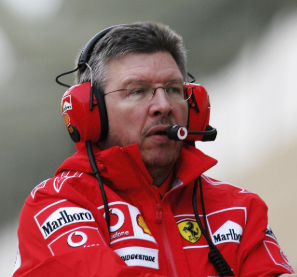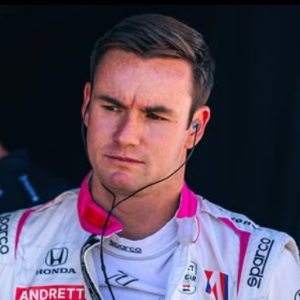The dominance of Michael Schumacher and Ferrari from 2000 to 2004 was not a product of luck or coincidence. It was the result of years of meticulous planning, unwavering determination, and exceptional teamwork
Ross Brawn’s insights into this period provide a deeper understanding of how challenges can be transformed into opportunities.
The legacy of this partnership continues to inspire the Formula 1 community and serves as a reminder of what is possible when talent and teamwork come together.
The collaboration between Michael Schumacher and Ross Brawn is a testament to what can be achieved when talent meets strategy.
Their journey, from sports car racing to dominating Formula 1, is a story of determination, innovation, and unparalleled success.
While their era may have passed, the legacy of their partnership continues to inspire and shape the future of motorsport.
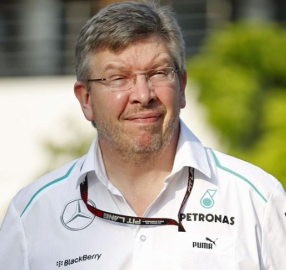
Also Read: Fernando Alonso’s Bold Strategy Against Michael Schumacher Explained
Table of Contents
Ross Brawn and Michael Schumacher: Beginnings of an Iconic Partnership
The partnership between Ross Brawn and Michael Schumacher is one of the most celebrated in the history of Formula 1.1
Their collaborative efforts redefined the sport and set a benchmark for future driver-engineer relationships.
While their dominance in F1 is widely acknowledged, the origins of their partnership trace back to the late 1980s when Brawn first identified Schumacher’s talent during his tenure in sports car racing.
Discovering Schumacher in Sports Car Racing
Ross Brawn’s first encounter with Michael Schumacher occurred during the mid-1980s when Schumacher was a part of the Mercedes sports car team.
Brawn, then an engineer with a sharp eye for talent, was immediately struck by Schumacher’s exceptional abilities. Reflecting on that time, Brawn shared:
“Michael stood out massively. Sports cars were about going quick but also driving with fuel. He was doing lap times on less fuel than the others, beating them by a mile.”
Schumacher’s skill in balancing speed with efficiency was a rare combination that set him apart from his peers. It was evident to Brawn that the young German had the potential to excel in Formula 1.

Schumacher’s Entry into Formula 1
Michael Schumacher’s F1 debut came in 1991 with the Jordan team. His performance in his first race caught the attention of Benetton, who immediately signed him.
Over the next five years, Schumacher honed his skills and proved his mettle, winning back-to-back world championships in 1994 and 1995. His time at Benetton also marked the beginning of his professional collaboration with Ross Brawn.
In 1996, Schumacher made a high-profile switch to Ferrari, a team that had been struggling to recapture its former glory.
Recognizing the importance of a strong technical team, Ferrari brought Ross Brawn on board to support Schumacher. This move laid the foundation for one of the most dominant eras in F1 history.
Building Ferrari’s Dream Team
The Schumacher-Brawn partnership was further strengthened by the inclusion of other key figures like Jean Todt and Rory Byrne.
Together, they formed a cohesive unit that transformed Ferrari into an unstoppable force. Their success was not immediate, as it took several years of development and teamwork to perfect their car and strategy.
From 2000 to 2004, Ferrari and Schumacher achieved unprecedented success, winning five consecutive world championships.
During this period, Schumacher’s skill and Brawn’s strategic brilliance were on full display. Their ability to adapt to changing regulations and outthink their competitors made them the team to beat.
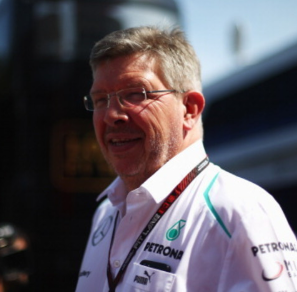
Ross Brawn’s Reflections on Schumacher
In various interviews, Ross Brawn has often spoken about the unique qualities that made Schumacher stand out.2
Beyond his technical prowess, Schumacher’s ability to unite and motivate his team was unparalleled. Brawn once remarked:
“Michael wasn’t just a great driver; he was a leader. He brought everyone together and made them believe in the impossible.”
The Comparison with Lewis Hamilton
In recent years, comparisons between Michael Schumacher and Lewis Hamilton have sparked debates among fans and experts. While Hamilton has surpassed Schumacher’s record for race wins and equaled his championship tally, Brawn believes that both drivers deserve their place among the all-time greats. He noted:
“Both Michael and Lewis are extraordinary talents. It’s unfair to compare them directly because they raced in different eras with different challenges.”
Schumacher’s influence on Formula 1 extends beyond his records. His emphasis on fitness, preparation, and teamwork set new standards for the sport.
Many of the practices he introduced, such as detailed post-race analyses and rigorous training regimes, are now standard across the grid.
Always cautious is good!
— Ross Brawn (@rossbrawnmercgp) March 8, 2012
The Enduring Legacy of Brawn and Schumacher
The partnership between Ross Brawn and Michael Schumacher remains a benchmark in Formula 1. Their achievements have stood the test of time, serving as an inspiration for teams and drivers alike.
The lessons from their collaboration continue to influence the sport, proving that the combination of talent, strategy, and teamwork is the key to success.
In recent years, Michael Schumacher’s health has been a topic of concern following his skiing accident in 2013. The accident left him with severe head injuries, and updates on his condition have been scarce.
Despite these challenges, Schumacher’s legacy in Formula 1 remains intact, and his contributions to the sport are fondly remembered.
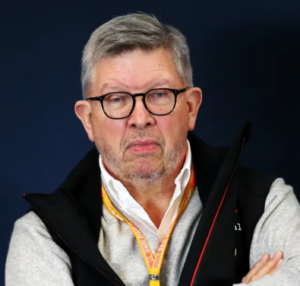
Ross Brawn’s Continued Influence in F1
After Schumacher’s retirement, Ross Brawn continued to make significant contributions to Formula 1.3
He played a pivotal role in the success of the Mercedes team and later became the managing director of motorsports for F1, shaping the future of the sport.
The Schumacher-Brawn partnership offers valuable lessons for aspiring drivers and engineers. Their story underscores the importance of perseverance, innovation, and trust in achieving greatness.
It also highlights the significance of building a strong team culture, where every member is aligned toward a common goal.
Overcoming Challenges
- Despite their dominance, the Schumacher-Brawn duo faced their share of challenges. The early years at Ferrari were marked by mechanical failures and fierce competition from teams like McLaren and Williams.
- However, their resilience and determination ensured that these obstacles were merely stepping stones to greater success.
- One of the most emotional moments for the Schumacher-Brawn partnership came during the 2000 Japanese Grand Prix, where Schumacher secured Ferrari’s first drivers’ championship in 21 years.
- The victory was a culmination of years of hard work and signified a turning point for the team.
- Conversely, Schumacher’s retirement in 2006 and his eventual return with Mercedes marked the end of an era for Brawn.
- While their paths diverged, the bond they shared remained strong, with both men expressing deep respect for each other in subsequent interviews.
- Michael Schumacher’s impact on Formula 1 transcends his statistics, which include seven world championships and 91 race wins.
- He was a trailblazer who pushed the boundaries of what was possible in the sport. His approach to racing, characterized by precision and adaptability, has inspired generations of drivers.
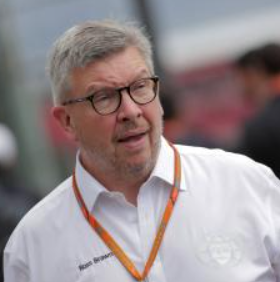
Also Read: Iain Bethke’s Wikipedia and Biography, Age And Girlfriend: Gina Schumacher
Ross Brawn in Ferrari’s Rebirth
Ross Brawn, known for his technical brilliance, was integral to Ferrari’s revival. As technical director, he worked tirelessly to refine the team’s strategies and improve car performance.
Brawn’s ability to understand Schumacher’s driving style and adapt the car to his strengths was a key factor in their synergy.
He also emphasized the importance of creating a cohesive team culture, fostering collaboration between engineers, mechanics, and drivers.
Schumacher was more than just a driver; he was a leader who inspired the team to push boundaries. His relentless work ethic, attention to detail, and ability to provide precise feedback made him a dream collaborator for engineers like Brawn.
Schumacher was known for spending long hours with the team, analyzing data and contributing to car development. His commitment to perfection set a new benchmark in Formula 1.
Near-Misses: Building Resilience
Between 1997 and 1999, Schumacher came agonizingly close to clinching the world championship but fell short each time.
In 1997, a controversial clash with Jacques Villeneuve ended his title hopes, while in 1998, a stalled start at the Japanese Grand Prix handed the championship to Mika Häkkinen.
Despite these setbacks, Ferrari continued to grow stronger. The lessons learned during these challenging years proved invaluable when the team finally achieved success.
The long wait ended in 2000 when Schumacher secured his first drivers’ title with Ferrari, ending a 21-year drought for the team.
This victory was not just a personal triumph for Schumacher but a testament to the team’s resilience. Ross Brawn’s innovative strategies, paired with the technical prowess of Rory Byrne and the leadership of team principal Jean Todt, culminated in a championship-winning car.
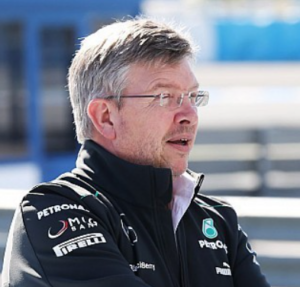
Ross Brawn: The Domino Effect
Five Consecutive Titles
Schumacher’s victory in 2000 marked the beginning of an unparalleled era of dominance.
Between 2000 and 2004, he won five consecutive drivers’ championships, setting numerous records along the way.
Ferrari also claimed six constructors’ championships during this period, showcasing the strength of their collective effort.
Brawn’s ability to adapt to rule changes and maintain a competitive edge played a crucial role in sustaining their dominance.
One of the hallmarks of Ferrari’s success was the unity within the team. Brawn often highlighted how the tough times in the late 1990s brought the team closer together.
The engineers, mechanics, and leadership worked as a single unit, driven by a shared vision of success. This cohesion allowed Ferrari to respond quickly to challenges and maintain their position at the pinnacle of the sport.
Innovation as a Key to Success
Ferrari’s dominance was not just about having a great driver in Schumacher; it was also about relentless innovation.
The team constantly pushed the boundaries of technology, introducing groundbreaking developments in aerodynamics, tire management, and race strategy. Brawn’s innovative approach to pit stops and fuel strategies often gave Ferrari a strategic edge over their rivals.
Michael Schumacher’s partnership with Ferrari redefined what it meant to be a Formula 1 driver. His approach to fitness, mental preparation, and teamwork set new standards for professionalism in the sport.
Today, many drivers cite Schumacher as an inspiration for their own careers. His legacy continues to shape the way teams and drivers approach the championship.
Also Read: Is Michael Schumacher Related To Josef Schumacher ? Exploring Their Family And Relationship Ties
